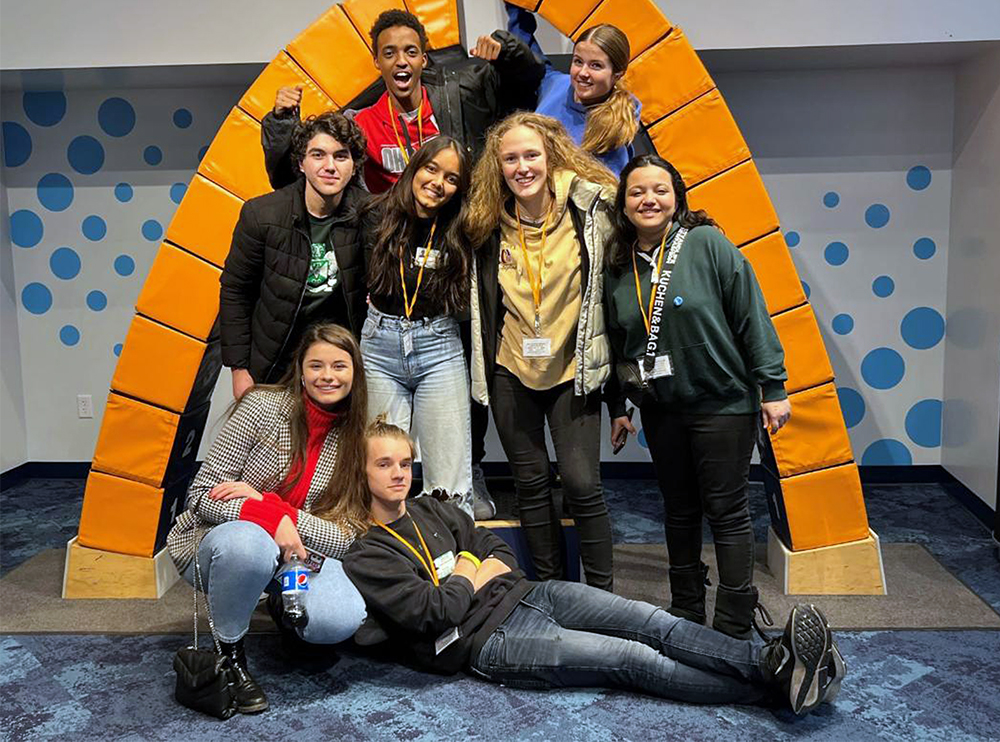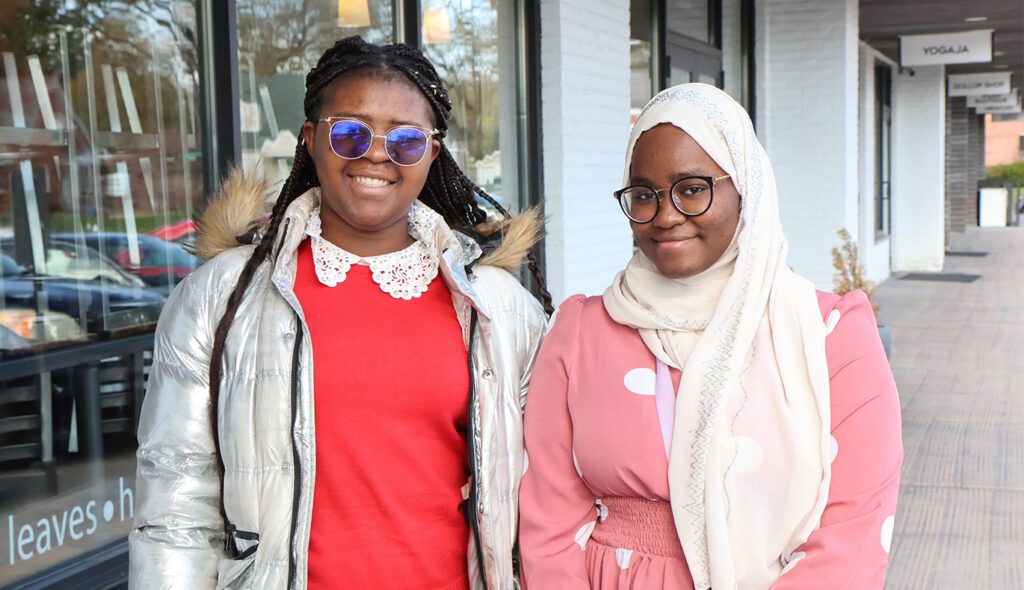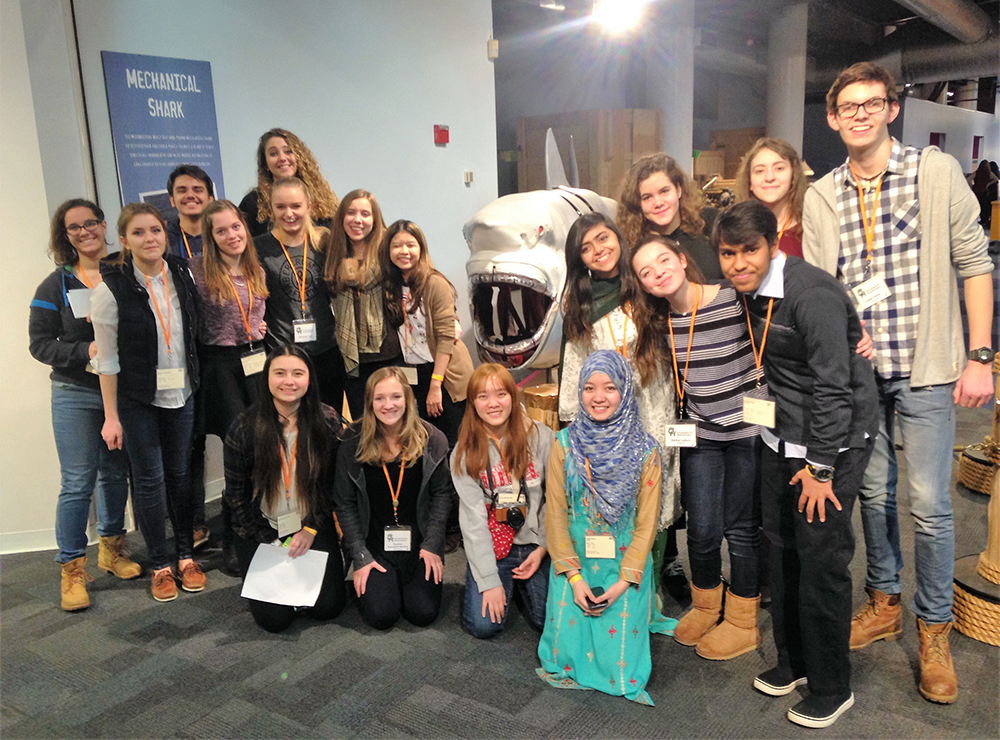Host families sought for international students
TOLEDO — Payments recently began flowing again for local high school exchange students who were caught up in the flurry of federal funding freezes earlier this year, but supporters have expressed concern about the long-term survival of these study abroad and cultural exchange programs in light of federal budget cuts.
Mandated by the Mutual Educational and Cultural Exchange Act of 1961, the U.S. Department of State oversees these programs as a means of cultivating mutual understanding between Americans and people of other countries to promote friendly, peaceful relations. This mission is carried out by the State Department’s Bureau of Educational and Cultural Affairs (ECA), which awards grants and cooperative agreements to non-profit organizations to support academic, cultural, and professional exchange programs.
American Cultural Exchange Service (ACES) and AFS Intercultural Programs are two nonprofit partners that contract with the State Department to facilitate exchange programs in the Toledo area. While some international students pay their own way, others participate in scholarship programs geared toward cultivating relationships with people from different parts of the world.

Tracee Ellis, regional director and local coordinator for ACES, said the organization is 100 percent funded by the government because they are facilitating State Department programs.
Disruptions to that funding began when some recipients of those grants, including ACES, were informed Feb. 13 of a 15-day temporary pause on all disbursements, effective Feb. 12. This impacted all international exchange programs for secondary and post-secondary students, including American high school students studying abroad.
That pause was supposed to expire Feb. 27, but the funding was not ultimately restored until the end of March, according to Ellis.
The freeze impacted salaries and operations, as well as stipends for the students. Some planned activities had to be cancelled, including a trip to Chicago and a weeklong civic education workshop that about 400 international students were to attend in Washington.
Ellis said the freeze was declared illegal in the courts because it impacted funding that Congress had already allocated through 2026. Ellis said ACES is receiving federal funds again and the students received all back payments for stipends they did not receive during the freeze.
The monthly stipends offset some personal expenses, such as clothes or extracurricular activities. Ellis notes many students come from warm climates and need help purchasing coats and other clothing, even items such as socks.
“I had a student come here with an overnight bag for nine months — not because they’re packing light; because that’s all they had,” Ellis said.
Changed lives and new perspectives
According to the Bureau of Educational and Cultural Affairs website, its youth programs empower the next generation and establish long-lasting ties between the United States and other countries. Exchange programs focus primarily on secondary schools and promote mutual understanding, leadership development, educational transformation and democratic ideals.
Linda Sherry, who serves in a volunteer capacity as team chair for Northwest Ohio for AFS-USA, described the international scholarship students as the future leaders of their countries.
“The kids who are chosen to be sponsored students are usually pretty amazing,” she said. “They are the ones who go home with a positive attitude about America, and they go back and they influence politics in their own country.”
One young man who visited Northwest Ohio from Tunisia recently notified Sherry he was accepted into Harvard. Another sponsored student returned home to graduate in the top of his class and become a doctor in India, where he is now training to become a cardiac surgeon and opening a hospital for the underserved in his hometown. Sherry also hosted a student from Germany who went on to graduate law school and become legal counsel for a member of the Bundestag, the legislative body in Germany.
Hosting international students
Since 2001, Sherry’s family has hosted students from Argentina, Germany, China, Thailand and Italy. She remembers them all by name and has even visited some in their home countries.
“I feel like I have contacts all over the world, and that’s a benefit of hosting students,” said Sherry. “Also, my own kids have become global citizens. They’ve ended up traveling because they understand the world on a more personal basis.”
Ellis hosted her first student, a young man from Mali, in 2014. He went on to attend a university in Paris, where he now works for Ernst and Young.
Ellis and Sherry both emphasize the constant need for host families. If they don’t get placed with a host family by the deadline, some exchange students have to be deferred for a year.
“This is the time of year when we’re looking for host families, and the main qualification for a host family is just the ability to love another kid — to bring them into their home and open up their hearts and open up their homes,” said Sherry.
Sometimes people who have preconceived notions about international students go out on a limb to host a student and it changes their entire perspective, according to Ellis.
”When that happens, that’s worth everything. That’s part of the whole mission right there — that they have opened their minds to other people and they consider other things. That’s a beautiful thing that happens, and that’s what’s so impactful about this program.”
This year, Ellis is hosting Cynthia Nkwah, 16, an exchange student from Hildegard Althaus Bilingual College in the South Region of Cameroon, who came to Toledo in September. She was one of nine students from her country chosen from an initial applicant pool of 50 for the Department of State’s Kennedy-Lugar Youth Exchange and Study (YES) program.

The initiative provides merit-based scholarships for high school students from nearly 40 countries with significant Muslim populations.
Nkwah said she never traveled before this year. While attending the 11th grade at Start High School, she has experienced many firsts, including her first movie.
Ellis said the stove, microwave, refrigerator and freezer were all new for her exchange student.
“They buy everything fresh. They grow it. They get it from the ocean. They’re not going to fast food restaurants and sit-down restaurants,” said Ellis. “She doesn’t have running water. They collect their water through springs and rainwater, and they boil it so they can use it.”
Nkwah recalled her confusion on her first day of classes at Start High School when she realized the students needed to move from class to class. She explained that at home, the teachers move between classrooms rather than the students. After someone explained a late pass to Nkwah, a friend helped her navigate around the school. She said it was also a shock to hear how casually students spoke to their teachers.
Nkwah is enthusiastic about her time in the U.S. and is looking forward to visiting Cedar Point with her choir class before she returns home in June. She will also attend a closing ceremony in Washington with other international students before she leaves the U.S.
After high school, Nkwah said she would like to attend medical school and would be interested in returning to the U.S. to attend a university.
Concerns about future funding
This year, ACES has 35 students from 32 countries studying in northwest Ohio and southeast Michigan. Ellis estimated about 3,500 international high school students come to the U.S. annually under State Department programs, with help from about 17 placement organizations.
Ellis worries about what the future holds for these programs. “We are placing students to come to this area for the next school year. So we’ve been funded through 2026. Beyond that, we don’t know,” she said. “The Administration, or President Trump, is threatening to pull more funding from the State Department.”
The Trump administration’s 2026 budget request, released May 2, calls for $690 million in cuts to educational and cultural exchanges.
AFS-USA, which was not directly impacted by the funding pause in February, said in a statement that it is monitoring the situation closely and continuing its programs as planned.
“We’re actively placing students for the upcoming school year, and there have been no changes communicated from the U.S. Department of State that impact our operations or program expectations per the announced reorganization,” the organization stated.
Ellis said she plans to continue advocating in Washington for exchange programs that change lives for both the international students and Americans who host and go to school with them.
“This is a national diplomatic initiative, and it’s one of the most important ones that the U.S. State Department has,” said Ellis.
The learning benefits extend far beyond the experience of the international students, she added. “This is a global learning experience for American students to understand what their role is as global citizens and how we’re interconnected.”















